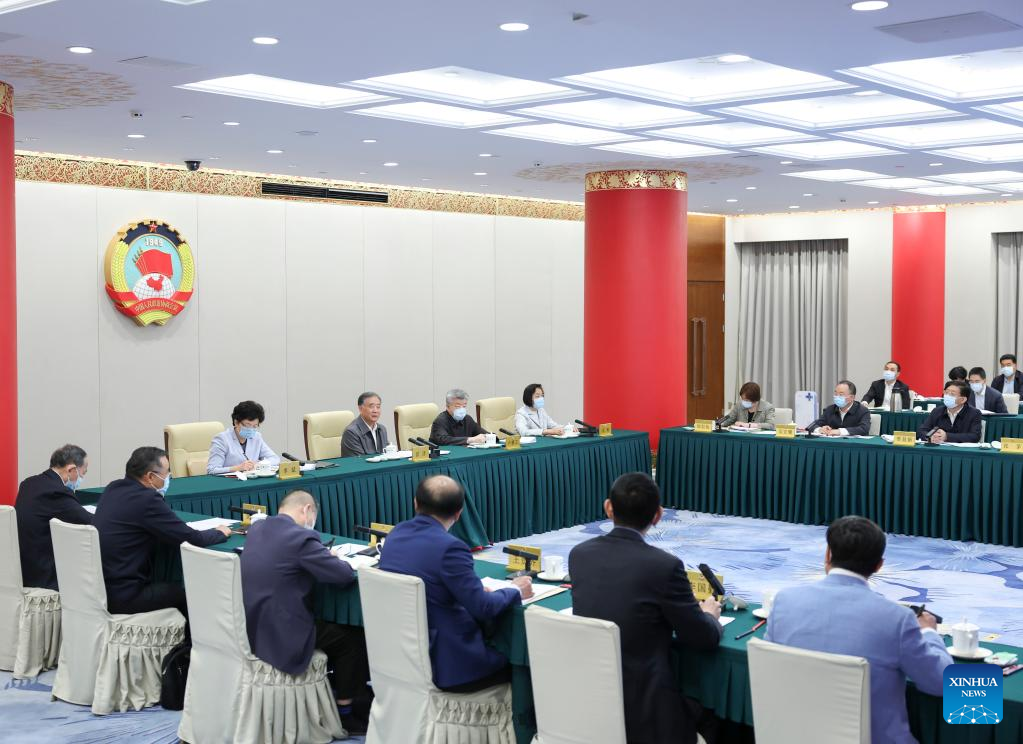Chinese political advisors pool wisdom on rural healthcare
Xinhua, April 27, 2022 Adjust font size:

Wang Yang, a member of the Standing Committee of the Political Bureau of the Communist Party of China (CPC) Central Committee and chairman of the Chinese People's Political Consultative Conference (CPPCC) National Committee, presides over a biweekly consultation session of the 13th CPPCC National Committee in Beijing, capital of China, April 26, 2022. (Xinhua/Ding Lin)
BEIJING, April 26 (Xinhua) -- China's top political advisory body convened a biweekly consultation session on Tuesday at which attendees contributed their suggestions on promoting healthcare in rural areas.
Presiding over the session was Wang Yang, a member of the Standing Committee of the Political Bureau of the Communist Party of China Central Committee and chairman of the National Committee of the Chinese People's Political Consultative Conference.
He called for greater input and institutional improvement to build a rural healthcare system that is suitable to the current development stage, offers health services that are equally accessible to rural residents, and runs in a sustainable manner.
Ten political advisors spoke at the session, with almost 80 more voicing their opinions via a mobile platform.
Recognizing the steady improvement of medical services in rural areas and the important role of rural medical facilities and medical workers in fighting COVID-19, attendees called for continuous efforts to address imbalance and inadequacy within the rural healthcare system, enable close coordination of medical services, medical insurance and medicine supply, and build a strong team of medical workers.
Attendees made suggestions such as planning and making use of healthcare resources in an integrated manner across an entire county, highlighting the functions of primary-level medical facilities in monitoring, preventing and treating age-related diseases, chronic diseases and endemic diseases, as well as spurring the enthusiasm of medical professionals at the primary level with incentives such as career growth and wage increases.
5ba361e6-c1d1-40e1-80db-36c62dd04eb1.jpg)
